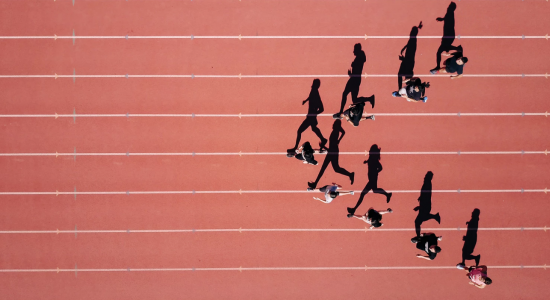
Erasmus+Sport: Partnerships
This action offers the opportunity to develop, transfer and/or implement innovative outputs and/or engage into intensive dissemination and exploitation activities of existing and newly products or innovative ideas in different areas relating to sport and physical activity. They involve various organisations and actors in and outside sport, including in particular public authorities at local, regional, national and European levels, sport organisations, sport-related organisations and educational bodies.
Collaborative Partnerships support projects which:
– Encourage participation in sport and physical activity, especially by supporting the implementation of the Council Recommendation on health-enhancing physical activity and being in line with the EU Physical Activity Guidelines and the Tartu Call for a Healthy Lifestyle;
– Encourage participation in sport and physical activity, especially by supporting the European Week of Sport;
– Promote education in and through sport with a special focus on skills development, as well support the implementation of the EU Guidelines Dual Careers of Athletes;
– Promote voluntary activity in sport;
– Combat doping, notably in recreational environments;
– Combat match-fixing;
– Improve good governance in sport;
– Combat violence and tackle racism, discrimination and intolerance in sport;
– Encourage social inclusion and equal opportunities in sport.
In all these areas, gender equality should be promoted. Cooperation with the Partner Countries should be encouraged.
In addition, Collaborative Partnerships should promote the creation and development of European networks in the field of sport.
They should also foster synergy with, and between, local, regional, national and international policies to promote sport and physical activity and to address sport-related challenges.
Supported activities
– networking among stakeholders;
– development, identification, promotion and sharing of good practices;
– preparation, development and implementation of educational and training modules and tools;
– activities to increase the competences of multipliers in the field of sport and to develop monitoring and benchmarking of indicators, notably as regards the promotion of ethical behaviours and codes of conduct among sportspeople;
– awareness-raising activities on the added value of sport and physical activity in relation to the personal, social and professional development of individuals;
– activities to promote innovative synergies between the field of sport and the fields of health, education, training and youth;
– activities to improve the evidence-base of sport to tackle societal and economic challenges (collection of data underpinning the aforementioned activities, surveys, consultations, etc.);
– conferences, seminars, meetings, events and awareness-raising actions underpinning the aforementioned activities.
Collaborative Partnerships target the cooperation between organisations established in Programme Countries.
Who can take part
Collaborative Partnerships are open to any type of public body, with its affiliated entities (if any) active in the field of sport established in a Programme Country or in any Partner Country of the world (public body in charge of sport at local, regional or national level; National Olympic Committee or National Sport confederation; sport organisation at local, regional, national, European or international level; national sports league; sport club; organisation or union representing athletes; organisation or unions representing professionals and volunteers in sport (such as coaches, managers, etc, organisation representing the ‘sport for all’ movement; organisation active in the field of physical activity promotion; organisation representing the active leisure sector; organisation active in the field of education, training or youth)
A Collaborative Partnership should be composed of:
– applicant/coordinator: organisation that submits the project proposal on behalf of all the partners.
– partners: organisations that contribute actively to the preparation, implementation and evaluation of the Collaborative Partnership.
A Collaborative Partnership is a transnational action, which involves at least five organisations from five different Programme Countries.
There is no maximum number of partners. However, the budget for project management and implementation is capped (and equivalent to 10 partners).
Who can apply
Any participating organisation established in a Programme Country: Austria, Belgium, Bulgaria, Cyprus, Croatia, Czech Republic, Denmark, Estonia, Finland, France, Germany, Greece, Hungary, Ireland, Italy, Latvia, Lithuania, Luxembourg, Malta, Netherlands, Poland, Portugal, Romania, Slovakia, Slovenia, Spain, Sweden, United Kingdom, Republic of North Macedonia, Iceland, Liechtenstein, Norway, Serbia and Turkey.
Venue
The activities must take place in the countries (one or more) of the organisations involved in the Collaborative Partnership.
Duration of the project
The duration must be chosen at the application stage (12, 18, 24, 30 or 36 months), based on the objective of the project and on the type of activities foreseen over time.
Grant
The maximum grant awarded is 400.000 EUR with a maximum of 80% financing of the total eligible costs.
Deadline
Applications should be submitted to the Education, Audiovisual and Culture Executive Agency by 21 April 2020, 17:00 Brussels time, for projects starting on 1 January of the following year.
Individuals seeking to apply should contact their organisation, institution, or educational establishment.
For further support please check the Erasmus+ programme or contact the national agency in your country.
Find out more here.
